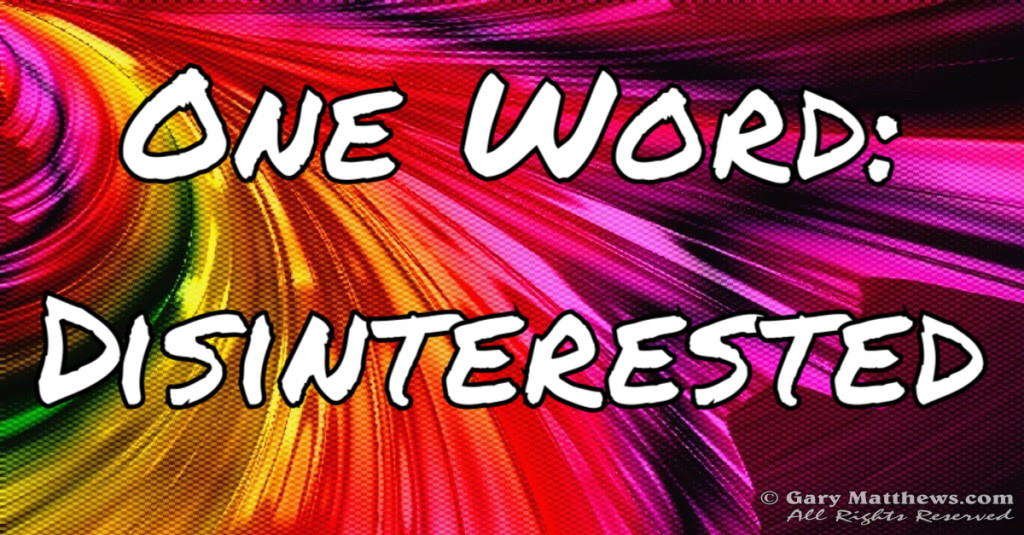Disinterested is a word I find most interesting.
Not ᴏɴʟʏ because it’s so often misused. (Although it is — like “comprise” and so many more.)
No, “disinterested” fascinates me because it expresses a subtle, absolutely indispensable concept about which we need to think and talk. And because I can’t think of any equivalent word we can summon for that thinking and talking.
Lots of folks misuse “disinterested” to mean “not interested”. It doesn’t mean that. If you aren’t interested in something, you’re ᴜɴinterested, not ᴅɪsinterested.
To be “disinterested” is to be impartial — detached — objective — about something in which you nonetheless take a strong interest.
For example, we want our banker to give us disinterested advice — that is, sound, objective advice — even (especially) when that advice goes against her own financial best interest. Similarly, a disinterested broker may advise us against buying a stock or a house despite wanting (and perhaps desperately needing) the commission.
If you’re a scientist or a journalist, you must be a disinterested observer. That is, you can and should take a strong interest in the topic at hand — but you must report your findings without being swayed by your feelings. The unvarnished truth must always trump your personal preference.
We ɴᴇᴇᴅ the word “disinterested” precisely because it’s so hard to be what it describes. We need a word with which to remind ourselves that it’s ᴘᴏssɪʙʟᴇ to be impartial even where we care most deeply.
In this sense, the ability to be disinterested is a hallmark of being human. To offer disinterested guidance, to take disinterested action, is to offer others the very best of ourselves.
—–
Confession: I wrote the above based on what I learned as a young writer. It’s what I was taught — a teaching reinforced, over the decades, by word-usage authorities I trust.
Having written, however, I just now looked up “disinterested” in a bunch of online dictionaries. I wanted (and expected) confirmation. Instead, damned if they’re not now saying the word ᴄᴀɴ be used to mean “not interested”.
Oh, it still means “impartial” and “detached” and everything else I’ve described. Some modern dictionaries even concede that this remains the word’s primary meaning. Not all, but some.
This is outrageous! The word has been so often misused that the misuse no longer is considered misuse.
Normally, I’d be fine with that. That’s the way language, as a living organism, evolves. Being a disinterested student of words, I respect that.
But we don’t need another word to mean we’re not interested. We already have that word — “uninterested”.
We ᴅᴏ need a word to say we can rise above the storm of our own strong feelings. If we lose that sense (and our ability to express it), we lose an irreplaceable treasure.
Given my own strong feelings, I’m no longer sure I can write disinterestedly about this word — not yet, anyway. Pending that, here’s Jane Mairs of LearnersDictionary․com:
In her “Ask the Editor” column, she writes that “some teachers and writers object to the other use of disinterested (‘not wanting to learn more…’) and even view it as an error. Therefore, in formal writing it’s best to use disinterested to mean impartial, and uninterested to mean not wanting to learn more or get involved.”
What she said!
#worth1000pictures #disinterested

